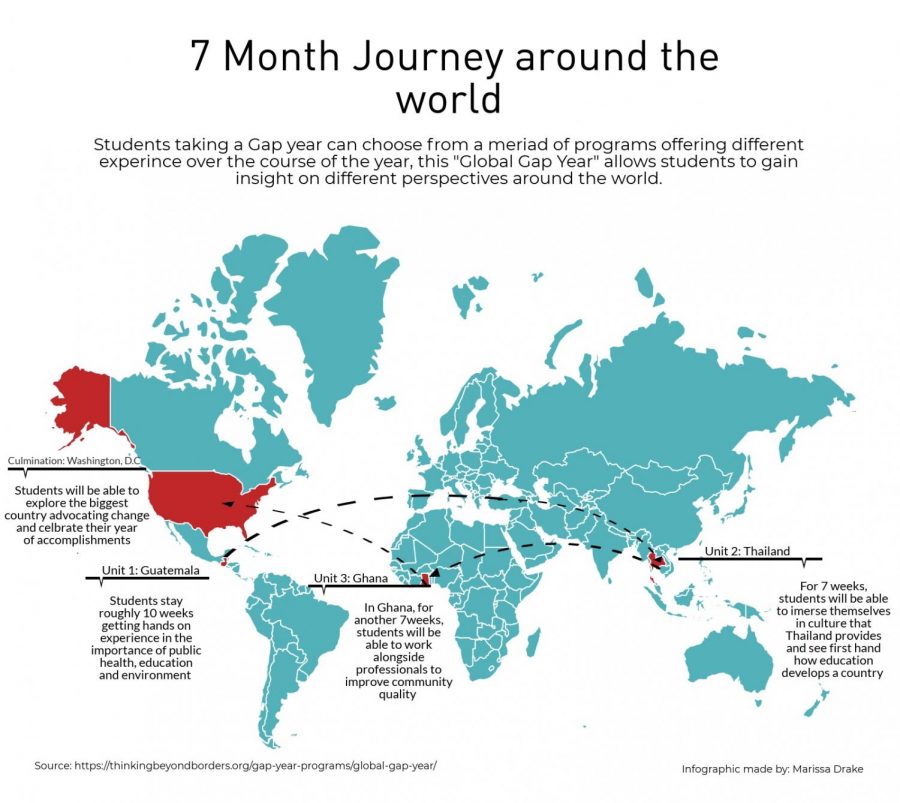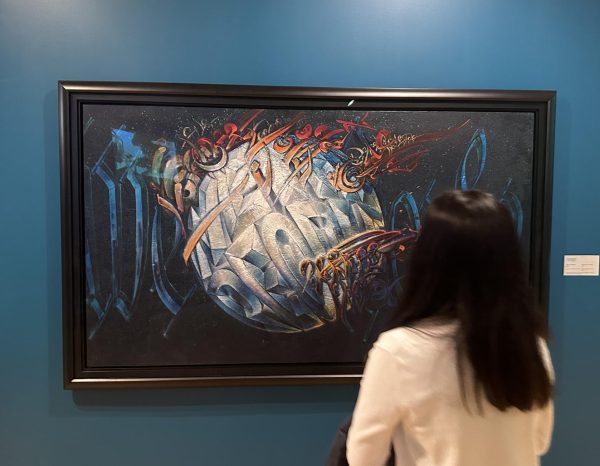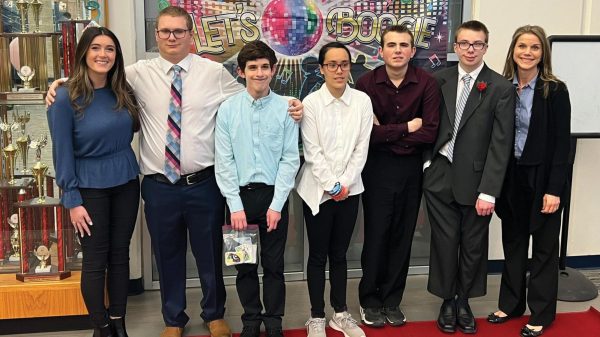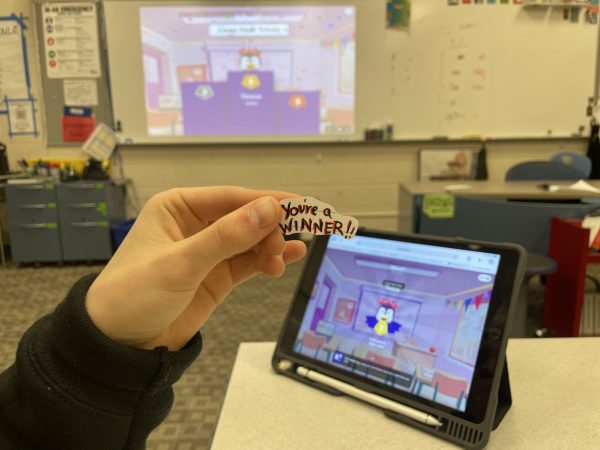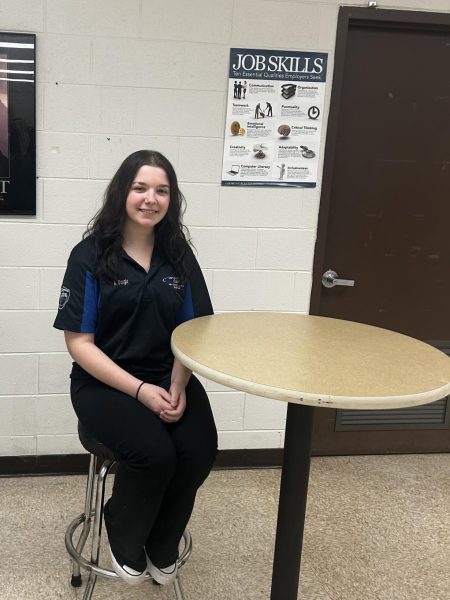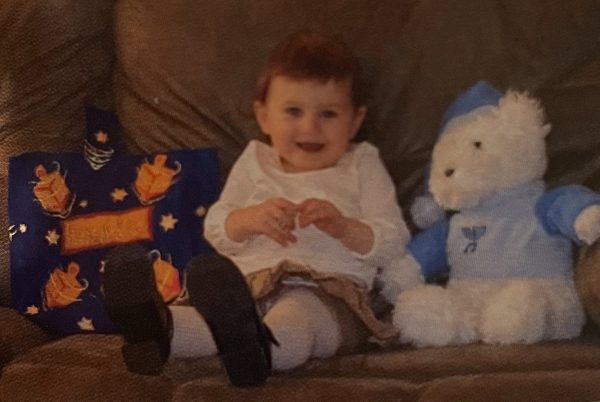The Year Between: How gap years can affect a student’s education
Photo by Infographic by Marissa Drake
Enlightenment, journey, and passion. While a lot of students can see taking a gap year, or a break in students education which typically spans from a year to two years, as time to work and save money for college, that is not always its true intention. A gap year is a time for a student to connect with their interest, to help them find what they truly wish to do with their career.
Gap years can sometimes happen after high school, sometimes in the middle of college or after a bachelor’s degree, Carl Krause, college counselor, said. This time can help a student who is unsure of the path their following really decide if this is what they want in life, Krause said.
“[A reason some students take a gap year is because] they’re unsure that they want to go on to whatever they’re going on to. So they take some time away to see if they miss it or if they can find something they’re interested in doing.” Krause said. “Students in the past who were burnt out on school weren’t doing very well academically and weren’t sure of what they wanted to do threw themselves into an experience that they would have never had otherwise. [These students] ended up really focusing themselves on their future and became outstanding college students because of that.”
Emily Stavins, a 2016 graduate of LZHS who took a gap year in between high school and the start of college, finds the year she took off an advantage to her perspective of college and work ethic. This break helped her feel more financially prepared and mentally prepared for her journey in education.
“[Before taking this break] I didn’t really have the motivation to go to college yet,” Stavins said. “I gained the motivation I needed by going to therapy and spending time with the people who have a positive influence on me. [However] while taking time off helped me gain motivation and perspective, I did feel a little bit anxious going back because I hadn’t been in school for so long. [But I felt more mentally prepared then I had in high school], college is a lot different than high school. You pick the classes you take, you choose your major, and you can even make your own schedule. You’re allowed to do things at a comfortable pace and not only that, but you’re actually working towards your dream job.”
While colleges don’t offer programs for students who wish to take a gap year, many Ivy League schools prefer if students take the year off as it makes students more mature and more focused on their dream jobs, Krause said. The USA Gap Year fair offers students an opportunity to hear experiences from adults who have taken a year off from school and browser options for programs which do offer service options for students during this time, Krause said.
“I know some of the Ivy League like students have gap time because it makes them a little more mature. If [the student] has done something interesting during that time, it makes them a more interesting candidate. The students’ academics are still solid because they haven’t changed in the year,” Krause said. “[At the Gap Year Fair] all the different vendors that have experiences for a student to do are there. I mean there are links online so you don’t need to physically attend the fair, but there are people who attend the fair that have experienced gap years as a parent, as a student or as providers. [So these people] can provide a different perspective on that.”
All in all, the decision to take the gap year is solely up to the student and their experiences with the education system, Krause said. Only you are the true decider of your future, Krause said.
“I wouldn’t not look into [taking a gap year] because you don’t know the perspective if anyone else doing it, I think everyone has to make up their own mind on what their future is,” Krause said. “If something like the gap year sounds interesting, research it, investigate it, and see if it’s a good fit for you and your family.”
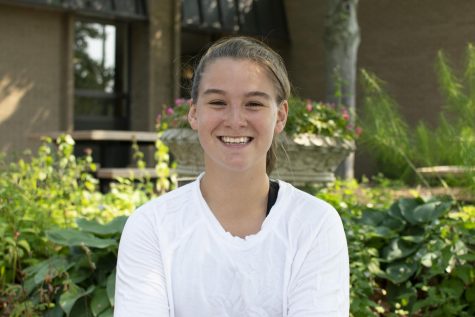
This is Marissa's first year on staff and second year in the journalism program. As a sophomore, Marissa likes to take long walks to the fridge and spends...

